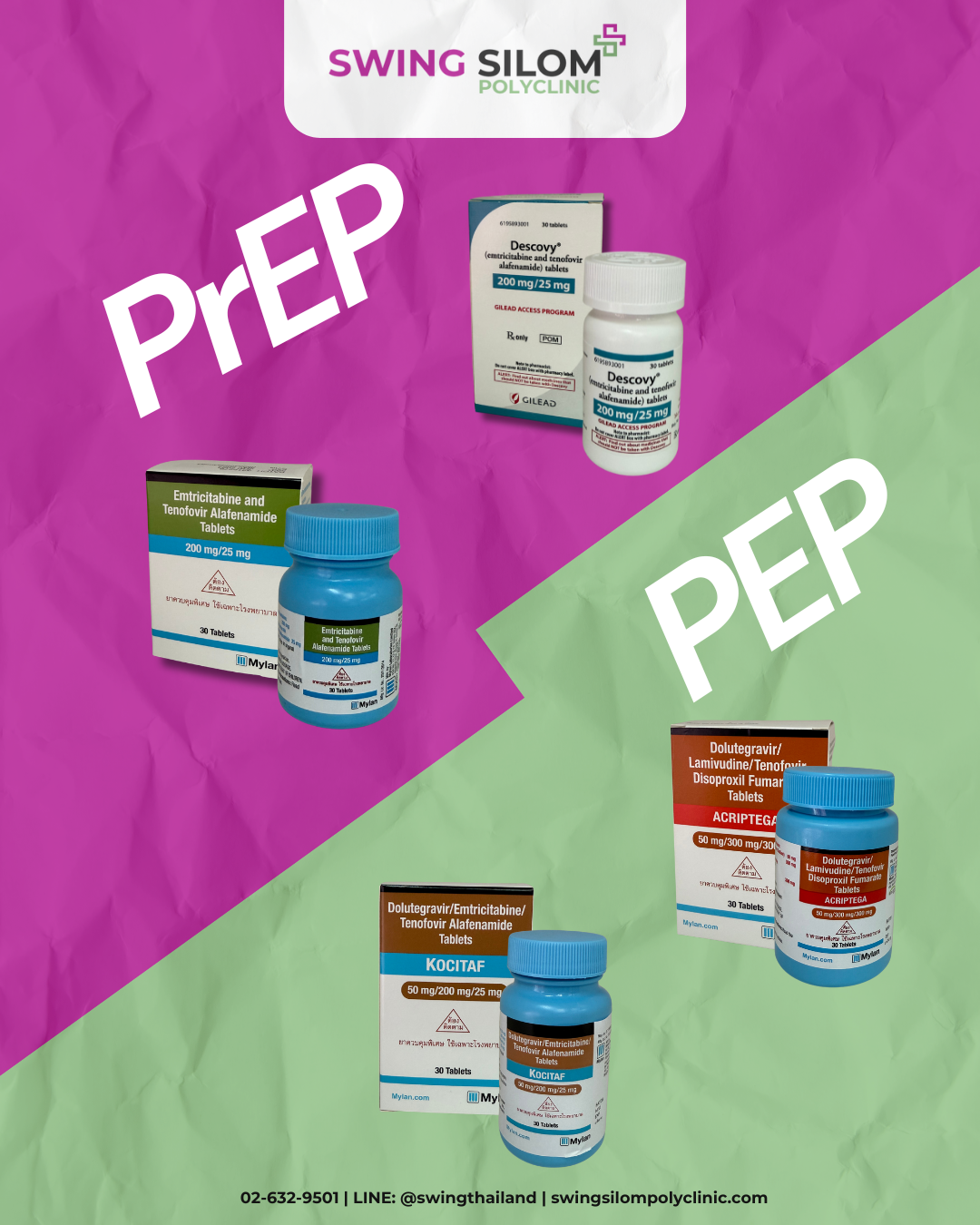
In the vibrant city of Bangkok, where the intersection of culture and modern healthcare flourishes, understanding how to protect yourself from HIV is more crucial than ever. With the availability of innovative prevention methods like PrEP (Pre-Exposure Prophylaxis) and PEP (Post-Exposure Prophylaxis), individuals can take proactive steps in managing their health. Whether you’re considering these options for the first time or seeking more information, this guide aims to clarify the differences, benefits, and appropriate uses of PrEP and PEP, ensuring you can make an informed decision tailored to your needs.
At SWING Silom Polyclinic, we prioritize your health and well-being by providing accessible, confidential, and inclusive care. Our mission is to empower you with the knowledge and resources necessary to prevent HIV effectively. In this blog post, we dive into what PrEP and PEP are, how they work, and what makes our clinic a trusted choice for these lifesaving services in Bangkok. Let’s explore how you can take control of your health and safeguard your future.
Understanding PrEP: Your proactive choice for HIV prevention
PrEP, or Pre-Exposure Prophylaxis, is a preventive medication designed for individuals who are at high risk of contracting HIV. By taking PrEP daily, you significantly reduce your chances of becoming infected with the virus. It works by blocking HIV from taking hold in your body if you are exposed to the virus, providing peace of mind for those engaged in sexual activities or sharing needles. In Bangkok, accessing PrEP is straightforward, with numerous health clinics, including SWING Silom Polyclinic, offering quality consultation and support for individuals considering this preventive option.
If you think you might benefit from PrEP, it's essential to start the conversation with a healthcare professional. They can provide tailored advice based on your individual circumstances and help you navigate the potential benefits and any concerns you might have. Regular check-ups and HIV testing are part of the process, ensuring you stay informed and healthy while using PrEP. Choosing this proactive approach to HIV prevention can empower you to take control of your sexual health in a caring and supportive environment.
Exploring PEP: A crucial response for potential HIV exposure
PEP, or Post-Exposure Prophylaxis, serves as an essential emergency treatment for individuals who have potentially been exposed to HIV. This medication is most effective when taken as soon as possible after the exposure, ideally within 72 hours. It involves a combination of antiretroviral drugs that can significantly reduce the chances of the virus taking hold in the body. Common situations that might warrant PEP include unprotected sex with someone who is HIV-positive or sharing needles with an infected person. Accessing PEP in Bangkok is straightforward, and it's crucial to consult a healthcare provider immediately to initiate treatment.
Understanding PEP is vital for those at risk, as it provides a safety net in urgent situations. The treatment lasts for 28 days and requires follow-up appointments to monitor its effectiveness and check for any side effects. Importantly, while PEP can be a lifesaver, it is not meant to be a regular prevention method; instead, it should be used only in emergencies. If you believe you have been exposed to HIV, reaching out to a healthcare provider for advice and support is the best course of action. Visit the HIV testing service page for more information.
Key differences between PrEP and PEP
PrEP (Pre-Exposure Prophylaxis) and PEP (Post-Exposure Prophylaxis) are both effective strategies for HIV prevention, but they serve different purposes and are used in different situations. PrEP is a proactive measure taken by individuals at high risk for HIV. By taking a daily pill that contains antiretroviral medication, users can significantly reduce their chances of contracting the virus if exposed. It's important to begin PrEP before any potential exposure, making it a golden key for those who want to take charge of their sexual health.
On the other hand, PEP serves as an emergency response. It is a treatment option for those who may have been recently exposed to HIV, such as through unprotected sex or sharing needles. PEP must be initiated within 72 hours after exposure and requires a regimen of medication taken for 28 days. Understanding these key differences helps individuals make informed decisions about their health and choose the right option to protect themselves in Bangkok. Whether you’re considering PrEP for ongoing prevention or PEP for a recent risk, knowing when and how to use these interventions is crucial.